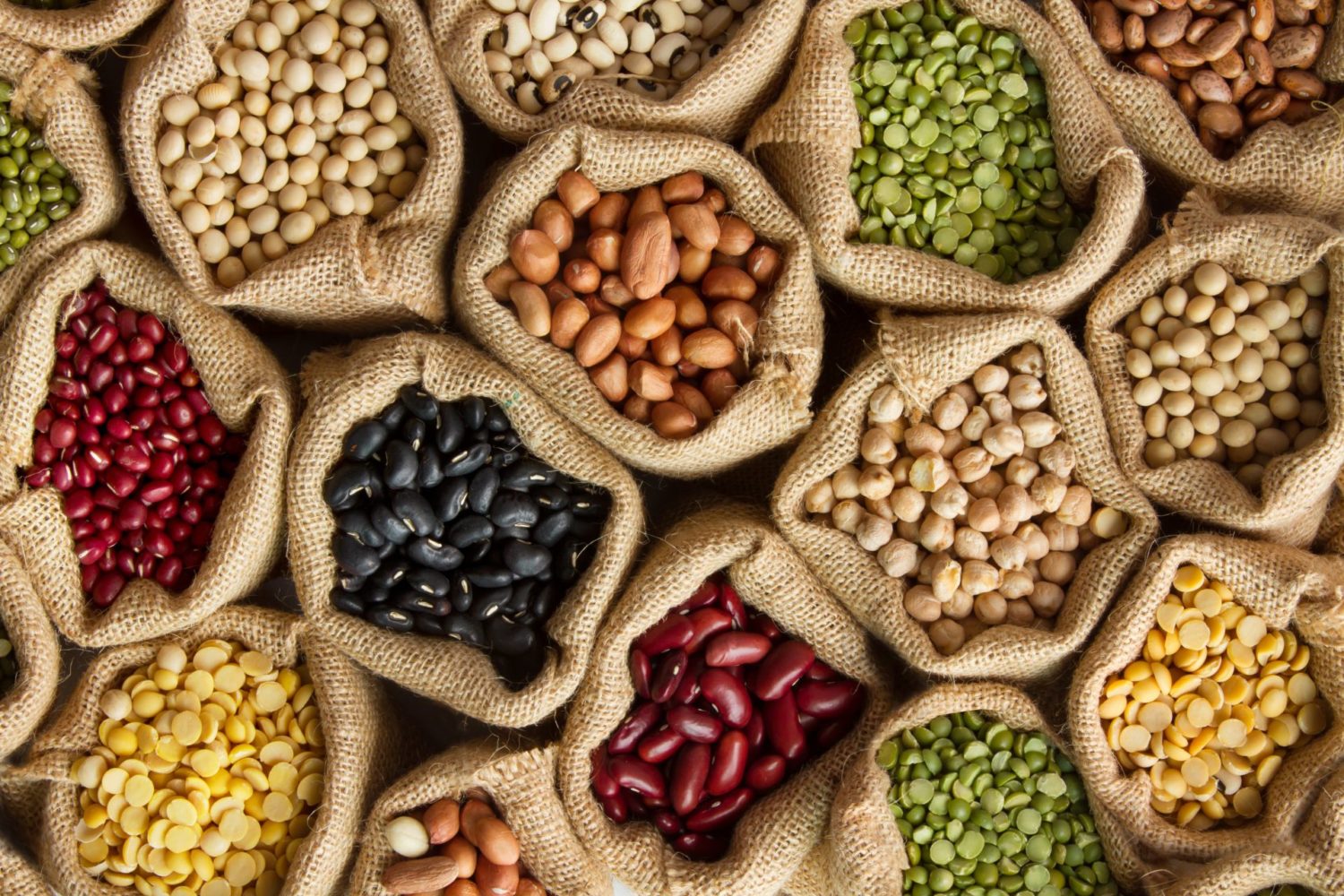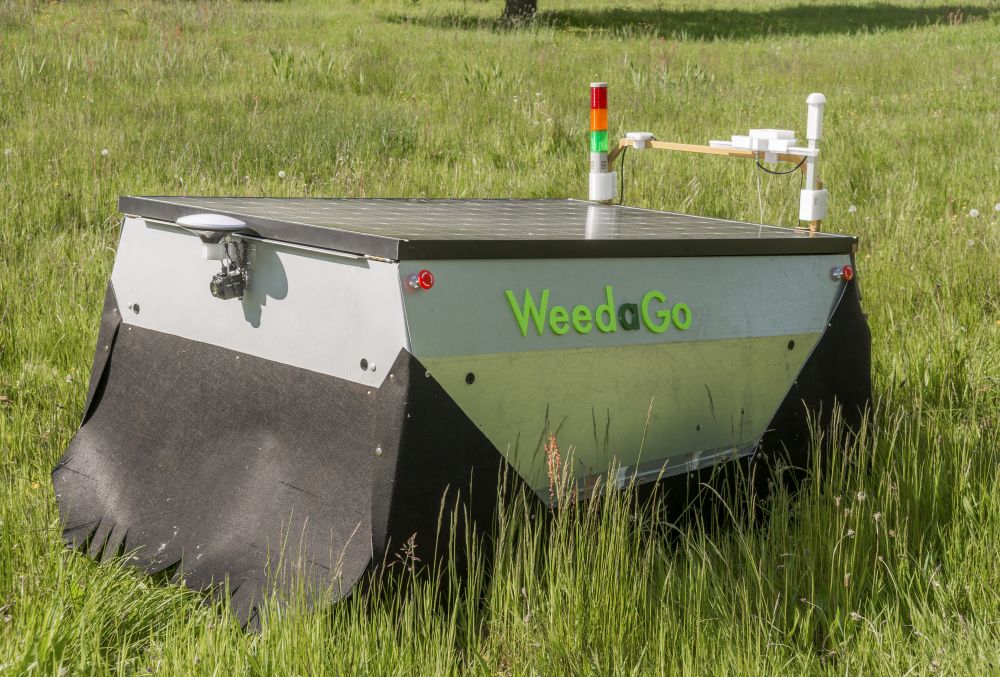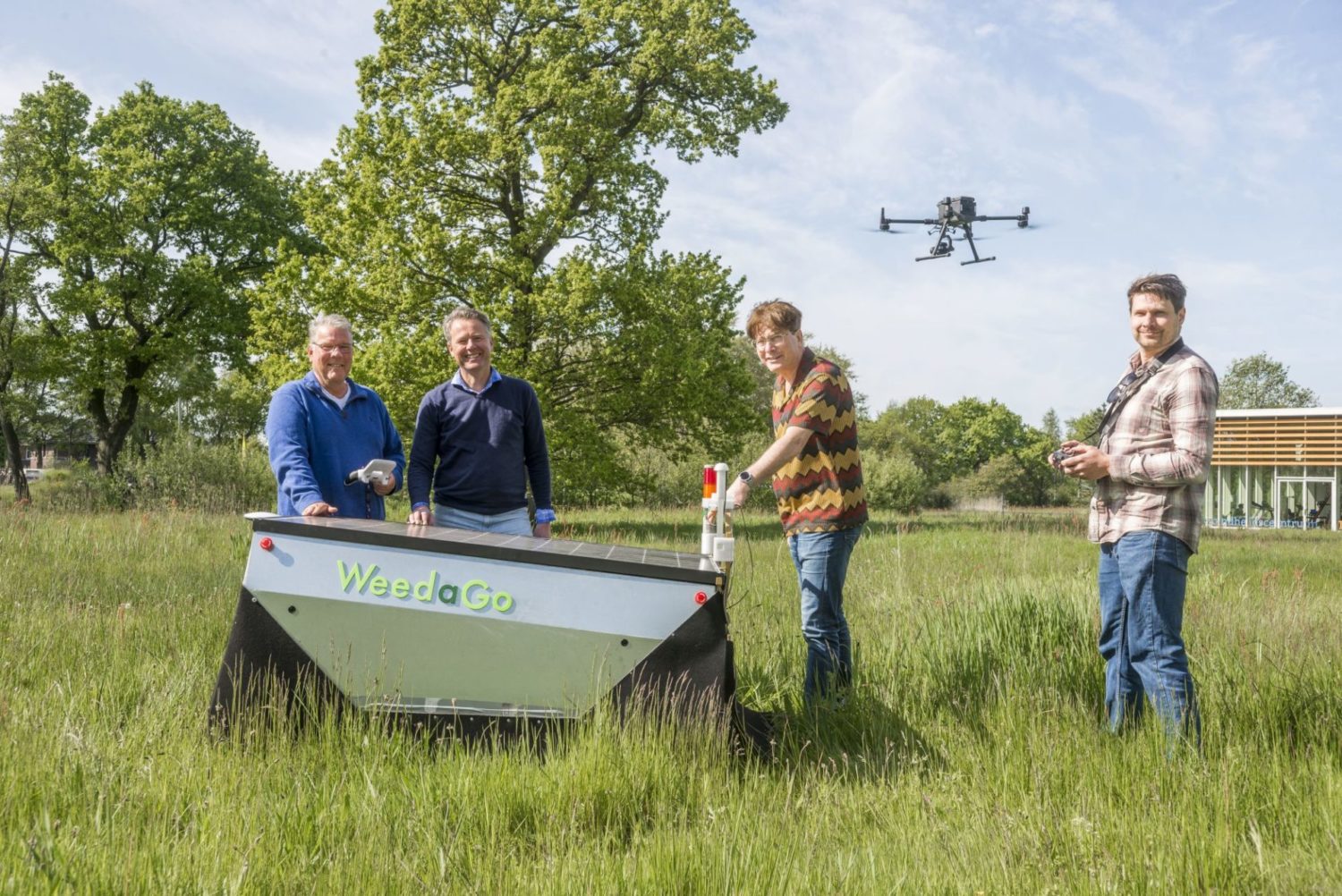
WeedaGo is working on robots that use artificial intelligence to unburden farmers in controlling weed pressure. To validate its ideal customer and market, the startup was one of the first participants in the Business Innovation Program Food (BIPF).
Like diseases and pests, weed pressure poses a serious economic threat to the agricultural sector. Weeds compete with crops for air, space, moisture and nutrients. Also, in places with weeds, grass does not grow and some weeds are even toxic to animals. With dire consequences for crops or livestock health.
Farmers, in other words, are being asked to actively manage weeds. Quite a challenge, especially in view of regulations surrounding the use of herbicides, social pressure for corporate responsibility and the growing labor shortage. Fortunately, new innovative technologies can offer solutions. Take WeedaGo, a promising northern startup where four specialists, with different backgrounds, are working on robots that use artificial intelligence to recognize weeds and control them plant-specifically.
Drone
'The field robot that is now ready and going into production focuses on controlling dock sorrel,' says Gert Maneschijn, who is involved in robotics and mechatronics within the company. 'Dorsetail is a stubborn and troublesome weed that can spread quickly and is a plague for farmers, especially dairy farmers. Because where sorrel grows, no grass grows.'
But how does robotic weed control actually work? And above all, what makes WeedaGo's solution so effective? 'We use a drone,' says René Bultje, responsible for project management and the business side of the startup. 'The drone photographs a large number of acres in a short time, from which one large photo is then taken. With the help of artificial intelligence, we are going to see where in the grassland ridges are located. The corresponding GPS coordinates are stored in a task file that is sent to the robot. Once present at the location, the robot drives directly, to within a few centimeters, to the spots where dock sedge is located to use herbicides to eradicate the weeds. Two weeks later, we return and the drone again takes pictures. When we see that not all the dock is dead, we know the dose needs to be increased.
Laser beam
In technological terms, Gert calls the first robot developed by WeedaGo a beautiful intermediate step. Because the ambition of the company reaches further than just relieving clients in the control of sorrel. Also beyond the deployment of drones and the use of herbicides. 'Our biggest market is organic farming,' he states. 'There we have to control weeds in an organic way, and so no spraying is allowed. We are going to do that with a smart robot equipped with a laser. Thanks to the application of artificial intelligence, the robot immediately distinguishes between weeds and crops. As soon as the robot sees weeds, it stops and unwanted plants are exterminated with a laser beam.'
Mixed group
WeedaGo was founded by Gert and René together with Leks Bolderdijk and Alfred Velthuis. A mixed group of founders who together have all the knowledge and expertise to take the products forward step by step. Leks, who comes from an agricultural family, understands like no other the wishes and needs of farmers when it comes to weed control. Not least because he is a certified drone pilot with plenty of experience in agricultural drone flights. Alfred has a background in artificial intelligence and robotics control. At WeedaGo, he focuses mainly on software engineering and training the models to recognize weeds. Based on artificial intelligence, of course.

Product or service?
About two years ago, WeedaGo in the Northern Netherlands was one of the first participants in the Business Innovation Program Food, or BIPF for short. A program specially developed for startups and existing companies that want to make the food chain more sustainable, smarter, more efficient or healthier. Step by step, they are trained to work on their vision, product, customer, revenue model and partnerships in the best possible way.
'We found out that we needed more market knowledge to make the company a success,' René explains the reason for participating in the BIPF at the time. 'Does WeedaGo now supply a product or a service? And which customer will you focus on? To answer those questions we did in-depth market research. We were also put on edge by the NOM. For example, we initially saw the farmers themselves as our main target group. Only, when a farmer buys a robot, it ends up in a barn for a while after weed control. That's not exactly cost-effective. Our research showed that it is better to provide the robot in combination with the drone as a service to contractors. Simply because a contractor has several farmers in his portfolio.'
Keeping focus
Another important lesson: dare to maintain focus. Because yes, almost everyone has an idea of what you can use such a robot for. 'Before you know it you are shooting in all directions,' smiles Gert. 'That's why we are initially focusing on controlling horse sorrel. Only then will we look at how we can also take the robot to the field. So first we have to make sure we get to the market. Once you get there, it's easier to expand. Ideally, we would like to accelerate even more in launching the first robot. This is difficult, because in addition to WeedaGo, all the founders have regular jobs. The wait is for the right moment to go full steam ahead.'
Recently, the startup has made significant strides. For example, WeedaGo now has a driving demo. 'We have shown that it works,' continues Gert. 'That the technology does what it needs to do. At the same time, we know exactly what it will take to further develop the robot and make it ready for production. For that, of course, we need capital in the short term. Otherwise we will be caught up.'

